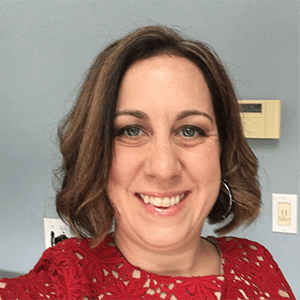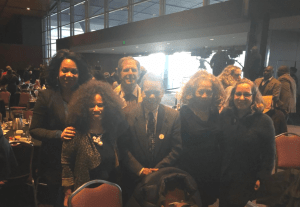By Christopher C. Graham, PhD Candidate in Global Governance and Human Security
As we come closer to the US 2020 presidential election, scholars are weighing in on the future of American democracy.
One such scholar is Leah Wright Rigueur, award-winning author and associate professor of at Harvard Kennedy School. Dr. Rigueur was the guest speaker at a recent Public Affairs Networking Reception hosted by the Dean’s Office Student Success Program (DOSS) at the McCormack Graduate School.
Drawing parallels with previous events in American political history, Rigueur’s talk explored how issues of race, political ideology, and party politics factors into the upcoming 2020 presidential election.
Highlighting the growing public discontent with partisan politics in America, Rigueur suggested that one of the main goals for voters is to elect a president capable of unifying the nation. Over the last decade there has been deepening discord between Democrats and Republicans in their policy preferences, social values and levels of tolerance for the other’s political views. Meanwhile in the nation’s capital, Congress remains deeply divided. Policymaking has strictly been along party lines. As a result, stalemate ensues on issues important to the American public, such as gun control, the environment and immigration.
On matters of race, the upcoming presidential election is a pivotal moment for institutional reform. The political landscape, dominated by two major political parties, has created an environment where both the Republican and Democratic parties are engaged in a zero-sum game that seldom benefits racial minority voters.
Rigueur explained that minority voters were looking to elect a president who was committed to reform aspects of the political party system. For example, neither of the two political parties seems to be providing the type of political leadership needed to address issues important to the African American community. These issues include voter suppression, criminal justice reform, generational wealth gaps, increasing student loan debt, gentrification and civil rights enforcement.
Rigueur identified voter suppression as one of the most concerning issues for racial minority communities. Since 2010 voting restrictions have tightened in over two dozen states. These restrictions include new voter identification laws and reduced ballot-casting locations. And more recently, the use of social media and other technologies to exploit racial tensions, spread misinformation, and suppress minority voters. Citing increasing reports of these strategies to prevent minority groups from voting, Rigueur called for more resolute political leadership on this issue.
Even with the presidential election less than a year away, and with voters mere weeks from casting the first votes in the Democratic primary, many of these issues remain unaddressed by Democratic presidential candidates on the campaign trail or Republican leaders. Rigueur, like many Americans, remains vigilant in holding political leaders accountable to upholding the values of American democracy.
In her closing remarks, Rigueur offered career advice to graduate students in attendance at the reception, encouraging students to remain committed to their vision for a better world. Many of McCormack’s students plan to pursue careers in public administration, the non-profit sector, international politics and academia, saying they will use their research, expertise and community engagement skills to make positive changes wherever they are needed.
Since its inception two years ago, the Dean’s Office Student Success Program has provided an action-oriented student success platform that deepens, complements, and enhances graduate student support initiatives. The DOSS program continues to cultivate a community of educational and career relationships that build professional competencies for students at the McCormack Graduate School.
The program facilitates student success from recruitment to degree completion and successful post-graduation placement. Engaging with scholars, community leaders and activists like Dr. Rigueur provides students with examples of the excellence that they should aspire to and the impact that they can make in the world.
Christopher C. Graham is the Program Assistant for DOSS. He is also a Fellow at the Center for Peace Democracy and Development, a Fulbright Scholar 2014-16 and a Doctoral Candidate at the McCormack Graduate School.





